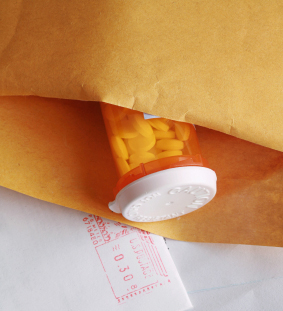I’m the type that plans for the worst and hopes for the best. We have a pantry full of canned food from the garden, a gas generator for power outages, and long-term supply of clean drinking water and several first-aid kits throughout the house. That’s why I read this blog, which inspired me to write my own post about stockpiling medication. I don’t think the zombie-apocalypse is coming and I’m only half-sure that we could face some kind of long-term economic meltdown. I’m not a conspiracy nut and I don’t have a bomb shelter. I’m a pretty normal guy, actually. But in the event that something catastrophic does happen – economically, socially or environmentally – I wouldn’t want to be put in the situation where I only have 1-3 months worth of medication on-hand. In my case, I depend on testosterone and thyroid hormones. Without them life gets pretty bleak for me. With them I not only feel “normal” – I feel great.
All of this is to bring up the topic of stockpiling testosterone, thyroid hormone and any other medication you have to take long-term. Here are some options we can consider:
- Ask your doctor if he/she would prescribe you enough to last a year. I don’t mean enough “refills” but enough at once. A refill does precious-little if the pharmacies have all been pillaged. Pro: It is perfectly legal. Con: Fat chance you’ll get them to agree, and it would be very expensive if you did because insurance is unlikely to cover that.
- Head down to Mexico or another country that has cheap meds and shady doctors who will prescribe you whatever you want. Pro: It comes with a vacation. Con: Crossing the border with a year’s worth of any medication is going to be risky – especially controlled substances like testosterone.
- Find a compounding pharmacy or HRT clinic (if hormone meds are what you need) and ask for the year’s supply. Pro: They tend to be a little more understanding than the average endocrinologist and, when it comes to uninsured meds, a little cheaper than the local pharmacy. Con: You have to find one you can trust.
- Start skipping a dose now and then, or taking less for awhile, and gradually build up a stockpile. Pro: Easy, cheap and legal. Con: It would take a very long time and I don’t like the idea of skipping doses.
- Tell your doctor you’re on vacation and forgot your prescription next time you’re out of town. Pro: They’ll usually write you a new prescription, which is often covered by insurance. Con: You can only use this trick once or twice a year without raising suspicions.
In the end I think I’m going to combine several of the options above for a multifaceted approach to stockpiling my meds in case of a long-term shortage or emergency. Hopefully it will never come to the point where I’d not be able to obtain my medications, but I’d rather be safe than sorry when it comes to something as important as access to my thyroid medication or testosterone.
A note about expiration dates: The pharmaceutical companies like to make money. That much is obvious. One way they generate more revenue is by making expiration dates much sooner than they need to be. This keeps them safe from lawsuits regarding under-dosed meds (they start gradually losing potency after expiration, but don’t just suddenly become “no good”) and keeps you buying more medication. The best thing to do once you build up a stock-pile is to rotate your meds so you are using the oldest from the shelf and replacing them with the ones you just got from the pharmacy. In this way you’ll never be using expired medication, and will always have a surplus to cover you for long-term shortages and emergency situations.
Anyone have any better ideas about this topic, or anything else to ad?

